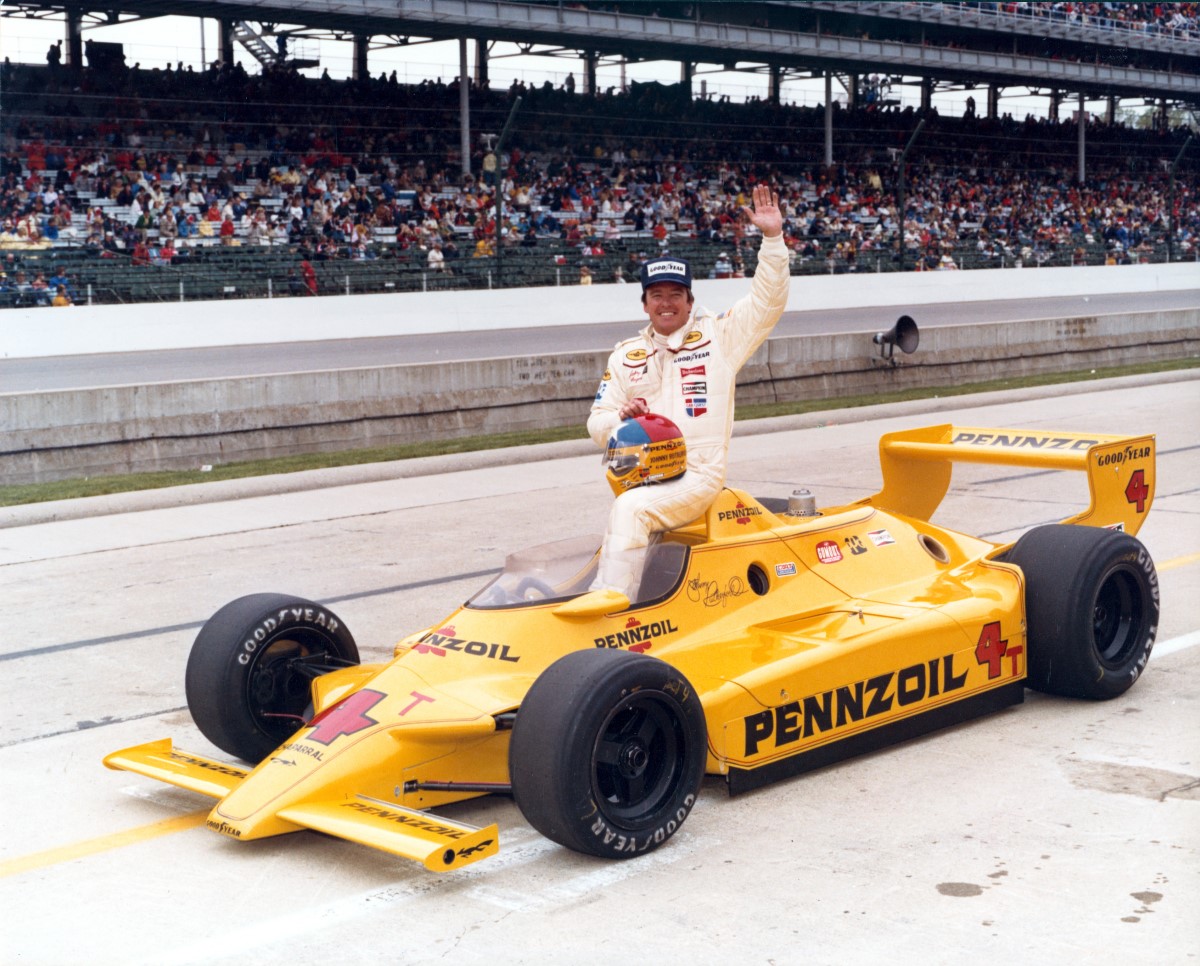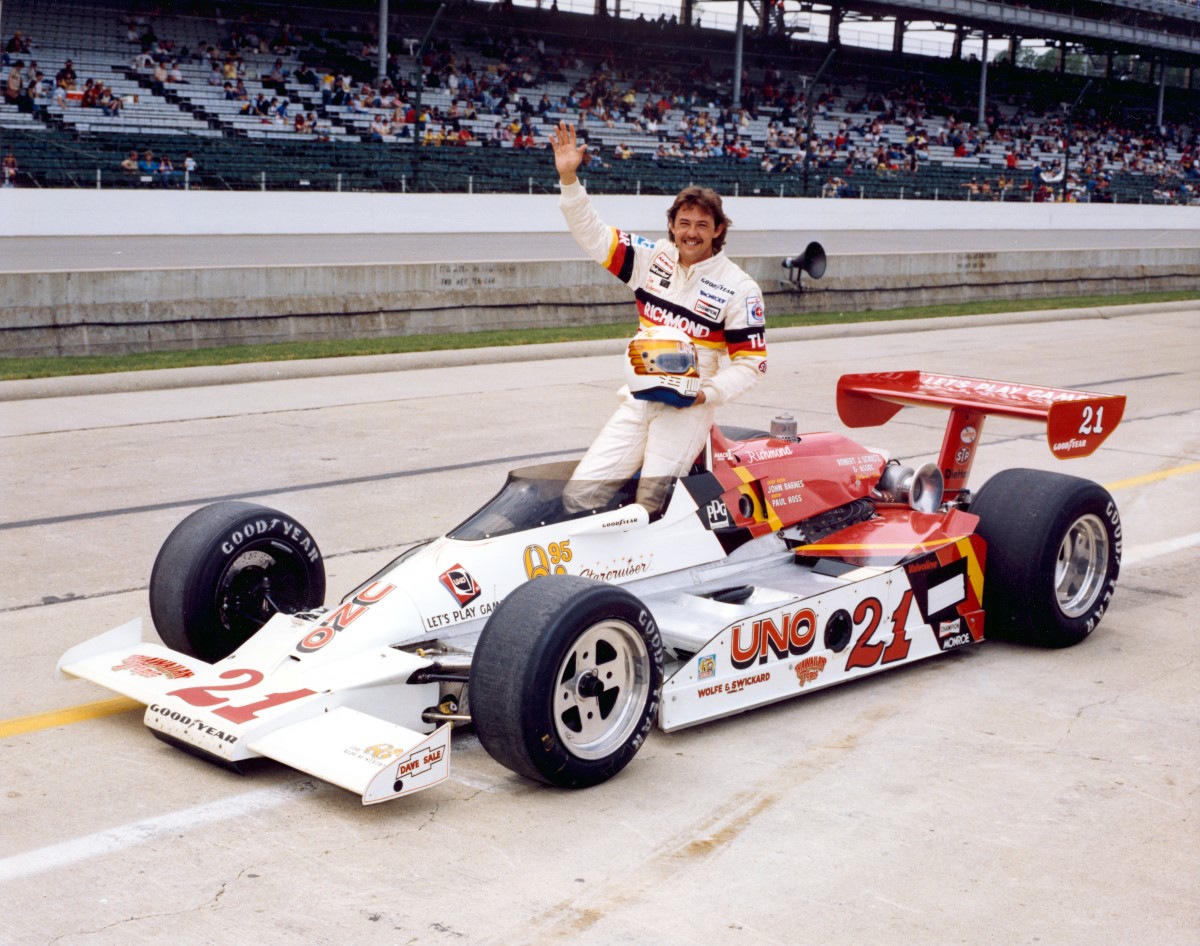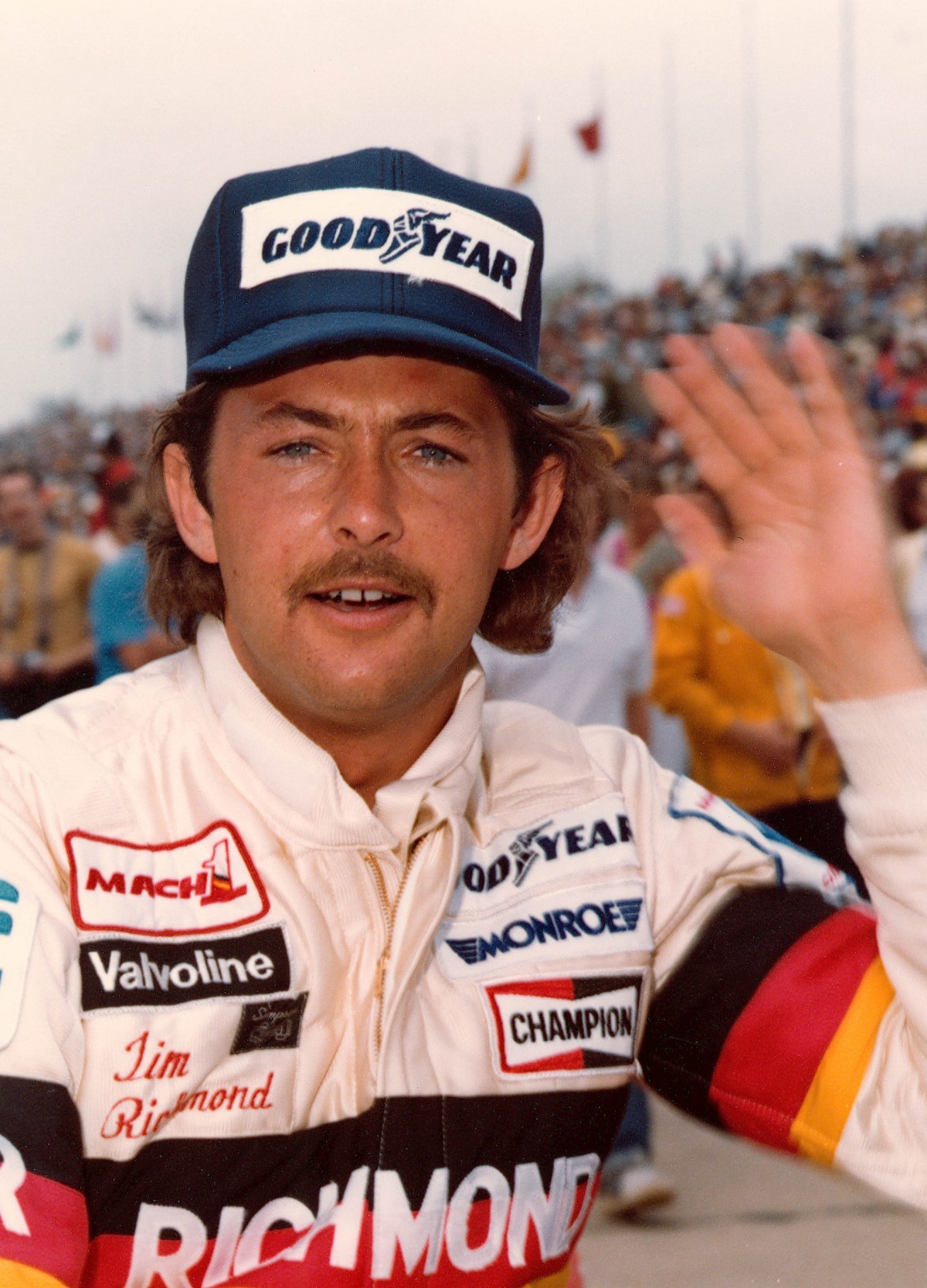Remembering Tim Richmond
 |
| Johnny Rutherford at Indy in 1980 |
| IMS Photo |
Twenty-nine years later, Johnny Rutherford still smiles when talking about one of the happiest moments of his 1980 Indianapolis 500 win. In celebrating his third Indy 500 victory, he shared his ride to victory lane with a “hitchhiker" named Tim Richmond.
The 1980 Indy 500 was a meeting of what motorsports writer Dave Argabright refers to as the “Greatest Generation" of open wheel drivers. Texan Rutherford, also known as “Lone Star J.R." won the 500 over Tom Sneva, Gary Bettenhausen, Gordon Johncock, Rick Mears, Pancho Carter, Danny Ongais, Tom Bigelow, Richmond, and Greg Leffler. A.J. Foyt, Mario Andretti, and Al and Bobby Unser were there, too. It just wasn’t “their" day.
Rutherford was making his 221st Champ Car start and his 17th in the Indy 500. Richmond was making his eighth career start and his inaugural appearance at The Brickyard.
Both drivers were popular however. The veteran Rutherford had cultivated legions of fans with his friendly demeanor for nearly two decades. Richmond, with some help of his sponsors, UNO and Indianapolis rock radio station Q95, was gaining a new young fans.
 |
| Tim Richmond at Indy in 1980 |
| IMS Photo |
Rutherford didn’t know Richmond well before arriving at Indianapolis for the month of May 1980, but he quickly knew of him.
“Tim was the rookie, the new guy and he showed some great talent. We were aware of his abilities. We had the quickest time in all the practice sessions but once. Tim was faster. He was full of enthusiasm…. A real up-and-comer," Rutherford said.
At the end of 500 miles at Indy on May 25, 1980, Rutherford had won his third and final Indianapolis 500. Richmond led one lap and finished ninth, three laps down and stopped on the grass inside of turn four after running out of fuel. He was still the highest finishing rookie in the race and 1980 Indy 500 Rookie of the Year. It was a huge day for the 25-year-old.
 |
| Tim Richmond at Indy in 1980 |
| IMS Photo |
What happened next, “that was spontaneous," Rutherford said. “When I drove for McLaren, then Hall, I’d take an entire extra lap after the race," Rutherford said, “just in case there was a scoring problem. I was coming around the track for the last time and in turn four, I saw a couple of cars sitting off the track smoking. I saw Tim, and I could hear the crowd cheering. Tim was standing there looking at his car, and he looked like he wanted to kick it. I got on the brakes, and flipped it in neutral. Tim ran up and asked ‘Did you win?’ I said ‘Yeah. Do you want a ride?’ So he jumped on the side pod and grabbed the roll bar and I took him down to pit road. The crowd was roaring and he was slapping me on the helmet. It’s one of my happiest memories of Indy. I wish Tim had stayed in Indy Cars and won the 500. That way I could have told people that I showed Tim the way to victory lane."
 |
| Tim Richmond at Indy 1980 |
Richmond made only two more Indy Car starts in 1980. Just eight weeks later he made his first NASCAR Sprint Cup Series start at Pocono (Pa.) Raceway, opening the door to a meteoric NASCAR career that saw him win 13 times between 1982 and 1987. He returned to the Indianapolis 500 in 1981, started last in 33rd position and finished 14th. It was his final Indy Car start.
 |
| Tim Richmond's career poster |
To racing fans, Tim Richmond's emergence onto the NASCAR scene in 1981 required many to readjust their images of the typical stock car driver. Richmond did not fall into the familiar stereotypical gritty, rags-to-riches, rural southern driver that dominated the Winston Cup Scene of that era. Far from it, Richmond grew up a child of privilege in a wealthy Ohio family. He did not grow up fixing up jalopies or racing along the dirt roads of the southeast honing his driving skills and dreaming of one day following in the footsteps of boyhood heroes such as Tim Flock, Junior Johnson or Fireball Roberts. In fact, Richmond did not even become interested in auto racing until he was 21-years old when he took a "joy ride" in a friend's Sprint car and became hooked on the adrenaline rush. Driving a racecar provided the dare-seeking Richmond with the thrill that he had sought in other risk-taking sports such as motorcycles, speedboats and airplanes.
By 1978, the dapper dressing driver had won the USAC Sprint Car Rookie of the Year and had become committed to being a professional racecar driver. Two years later, his open-wheel racing career culminated in a ninth place finish in the 1980 Indianapolis 500. Though he ran out of gas in the event, he still earned Indy 500 Rookie of the Year honors. During the 500, Richmond caught the eye of Dr. Joseph Mattioli, founder and former President of Pocono Raceway, who invited the fast-living open-wheeler to race at his Pennsylvania track against American's best stock car drivers. Tim accepted the invitation and finished 12th that July to mark his NASCAR debut in a D.K. Ulrich Chevrolet. Richmond would go on to win four Winston Cup races at Pocono, including three in a row between 1986 and 1987.
In his 8 years as a NASCAR Winston cup driver which didn’t start until the age of 21, Tim visited victory lane an astounding 13 times, with his very first cup win coming on a road course in Riverside, California. He also added 78 top 10’s, and 14 poles to his 185 race starts.
Richmond's talents behind the wheel caught the eye of team owner Rick Hendrick, who signed him for the 1986 season.
 |
 |
And what a season it turned out to be for the now 29-year old Richmond! Driving the No. 25 Folgers Coffee Chevrolet, he won seven times that year and collected 13 Top 5 and 17 Top 10's, as well. Except for a string of mechanical failures in the latter part of the season, Tim Richmond could have won the Winston Cup Championship. Dale Earnhardt won that year’s championship, with Richmond finishing third, a mere 6-points behind Darrell Waltrip. Already, the on-track battles for position between Earnhardt and Richmond were becoming legendary, and it was assumed that there would be plenty more side-by-side battles between the two as the years went on.
But there were to be no more years of racing. During the winter of 1986, Richmond was diagnosed with HIV and became so sick that he was not able to run a full race again until June of 1987, at Pocono, the very track where his NASCAR career started. He won that race in emotional fashion, crossing the finish line in tears and unable to speak in victory lane. And then he won again the following week, in what was to be his last Cup win, ironically at the same track where he had recorded his first win, Riverside. And by August of that year NASCAR, not knowing the nature of Richmond's illness, a sickness that was sapping his health, concluded that he "was in no shape to drive a car." He then resigned from Hendrick Motorsports.
 |
| Tim Richmond |
“It was devastating that we lost him," Rutherford said. “He was gregarious, a go-getter, handsome, dashing and he had a lot of ability. Had he lived, he would have set a lot of records."
Tim Richmond’s life was loosely portrayed in the movie “Days of Thunder" by the character of Cole Trickle. Tim had a very promising career ahead of him until it was cut short in 1986 as he was diagnosed with AIDS.
1987 would bring even more challenges to his already troubled life. It wasn’t until the middle of the season that he would return, and pick up back-to-back wins at Pocono and Riverside. The win at Riverside would ultimately be his last.
By the following year, NASCAR would step in and deal Tim a very sour hand.
 |
| Tim Richmond was handsome and flamboyant. The woman loved him |
NASCAR would begin to treat Tim like some kind of drug addict. They defamed his integrity by making him take a drug test because of his deteriorating health, then going out and suspending him indefinitely because NASCAR said that he had tested positive for a controlled substance. Richmond demanded another test, and when those results came back… they were negative. NASCAR would later admit that the first test that Tim took was also negative; the only substance that showed up was Sudafed and Advil.
Little by little NASCAR was trying to not only defame Richmond, but they also wanted him out of the Cup series acting like some modern day western day lynch mob. NASCAR went as far as to not let him race until he came up with all of his medical records. Richmond filed a defamation of character lawsuit, but he would eventually withdraw it and leave the sport. Richmond would move back to Florida where he eventually died in 1989. NASCAR to this day has not apologized for the brash and disrespectable way that Tim was treated. But in typical France fashion, they have chosen to not mention it, and basically sweep it under the rug.
To celebrate Richmond’s life, he will be honored near his hometown of Ashland in Mansfield, Ohio on June 20. The inaugural Tim Richmond Memorial ARCA RE/MAX 200 will be presented at Mansfield Motorsports Park. Richmond was a winner in ARCA competition in the ARCA 200 at Daytona in his first series start in February 1981.
